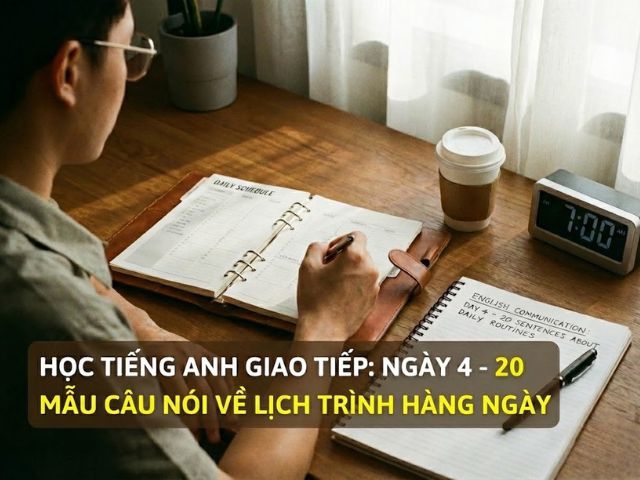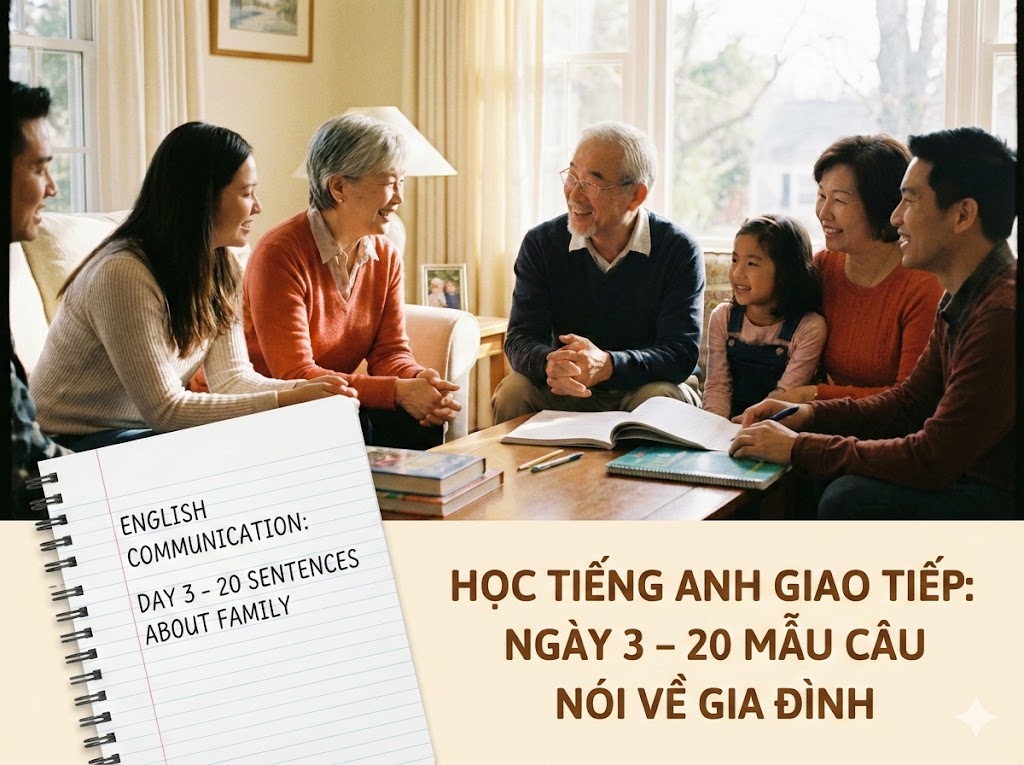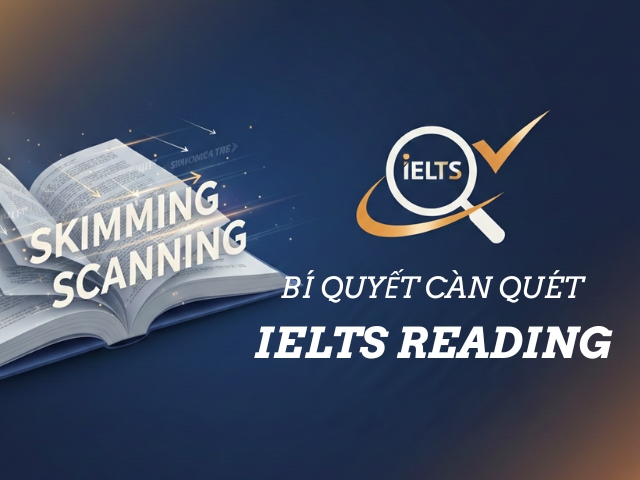Cách Sử Dụng Cấu Trúc Câu (Not) As . . . As, Enough, Too (Tiếp Theo)
Trong phần thi IELTS Writing, việc sử dụng cấu trúc câu đúng và linh hoạt là một yếu tố quan trọng để đạt điểm cao. "not as...as," "enough," và "too" được sử dụng để so sánh hai đối tượng hoặc hành động, để diễn tả rằng một đối tượng hoặc hành động không bằng mức độ nào đó so với đối tượng/hành động khác. Đây là một cấu trúc quan trọng trong việc luyện thi IELTS, đặc biệt là trong phần IELTS Writing.
7. Too slow và not quick enough có cùng một nghĩa. Ta có thể sử dụng too với tính từ, trạng từ hoặc từ chỉ số lượng (quantifier) như sau:
too big too quickly
too much noise too few people
8. Ta sử dụng too trước tính từ hoặc trạng từ:
My new shoes are too small. I bought them too quickly.
Ta sử dụng too much, too many, too few và too little trước danh từ. Trong những câu sau, ta có thể bỏ danh từ nếu đã rõ nghĩa:
We bought too much paint.
We thought we hadn’t bought enough paint, but we’d bought too much.
(too much = too much paint)
9. Cụm từ có too có thể đi với for kèm theo danh từ hoặc đại từ:
This weather is too hot for my dad.
There are too few chairs for all these people.
The teacher spoke too fast for me.
10. Cụm từ có too có thể đi với động từ nguyên mẫu (infinitive):
It’s too hot to sit in the sun.
There are too few players to make a team.
Khi chủ từ của câu (xét về nghĩa) là túc từ của động từ nguyên mẫu, ta bỏ qua không sử dụng túc từ:
The soup was too hot to eat.
(Không nói The soup was too hot to eat it)
Trong câu phủ định, đôi khi người ta sử dụng too đồng nghĩa với very:
I don’t know too much about computers.
(= I don’t know very much about computers.)
She didn’t look too happy. (= She didn’t look very happy.)
Thực hành văn phạm
6. Ta sử dụng too với nghĩa ‘nhiều hơn đủ’ (more than enough) hoặc khi ta có nhiều hơn ta cần. Khi đi mua sắm, ta phân vân không biết những gì ta thấy có phù hợp hay không:
I want a simple camera. This one has too many buttons. That jacket is too big for you. I don’t want anything too expensive. I can’t pay more than about £40.
Bài tập:
D. Vehicle problems
Complete the sentences with too so that they correspond to the information given.
0 The speed limit is 100kph but Gregg’s driving at 35kph.
Gregg’s driving too slowly.
1 The car holds five people but there were seven in it.
There were . . . . . . . . . . people in the car.
2 Max isn’t old enough to have a motorbike.
Max is . . . . . . . . . . to have a motorbike.
3 John’s car was parked for two hours but he had only paid for 45 minutes.
John’s car was parked . . . . . . . . . . .
4 We haven’t got enough petrol for a drive to the coast.
We’ve got . . . . . . . . . . petrol for a drive to the coast.
5 The tyres need more air.
There’s . . . . . . . . . . air in the tyres.
6 There aren’t enough service stations on this road.
There are . . . . . . . . . . service stations on this road.
7 Jenny did very badly in the exam.
Jenny didn’t do . . . . . . . . . . in the exam.
E. The imperfect holiday
Complete the conversation using the words in brackets and as . . . as, enough or too and adding to or for where necessary.
SUE Did you enjoy your holiday?
PIPPA It didn’t go (0) as well as we’d hoped.
LUCY Things started badly at the airport. There weren’t (1) . . . . . . . . . . (people) checking the luggage so the queue was enormous.
SUE But was the flight OK?
PIPPA It was one of those planes with the seats (2) . . . . . . . . . . (close together) possible so you can’t stretch your legs. However, the flight was (3) . . . . . . . . . . (short) so it wasn’t a big problem.
LUCY And there were far (4) . . . . . . . . . . (many) young men who had packed far (5) . . . . . . . . . . (much) in their hand luggage, so their bags were (6) . . . . . . . . . . (big) to go in the lockers.
SUE What about the hotel?
PIPPA It was all right, I suppose, but we couldn’t change the air conditioning, so it was (7) . . . . . . . . . . (cold) me.
LUCY And the food wasn’t (8) . . . . . . . . . . (wonderful) the website claimed. It was much (9) . . . . . . . . . . (oily). In any case, every meal was rushed so there was never (10) . . . . . . . . . . (time) really enjoy it.
SUE Did you visit the old town?
PIPPA Yes, it was all organized in groups, but the groups were (11) . . . . . . . . . . (big). And our guide didn’t speak (12) . . . . . . . . . . (loudly), so it was impossible to hear her.
LUCY The cathedral was wonderful, though. It really is (13) . . . . . . . . . . (spectacular) everybody says.
SUE And the night life?
PIPPA Great, although the bars are always (14) . . . . . . . . . . (noisy) a serious conversation.
LUCY Nobody wants a serious conversation on holiday. We obviously enjoyed it because we were out so late that most days we got up (15) . . . . . . . . . . (late) have breakfast.
PIPPA On the last day, we went shopping and we gought you this T-shirt. I hope it’s (16) . . . . . . . . . . (big) you.
SUE Oh, how nice! Yes, it’s my size.
Đáp án:
D.
1. too many 5. too little
2. too young 6. too few
3. too long 7. too well
4. too little
E.
1. enough people 9. too oily
2. as close together as 10. enough time to
3. short enough 11. too big
4. too many 12. loudly enough
5. too much 13. as spectacular as
6. too big 14. too noisy for
7. too cold for 15. too late to
8. as wonderful as 16. big enough for
Nguyen Minh Son (12.07.2012)




